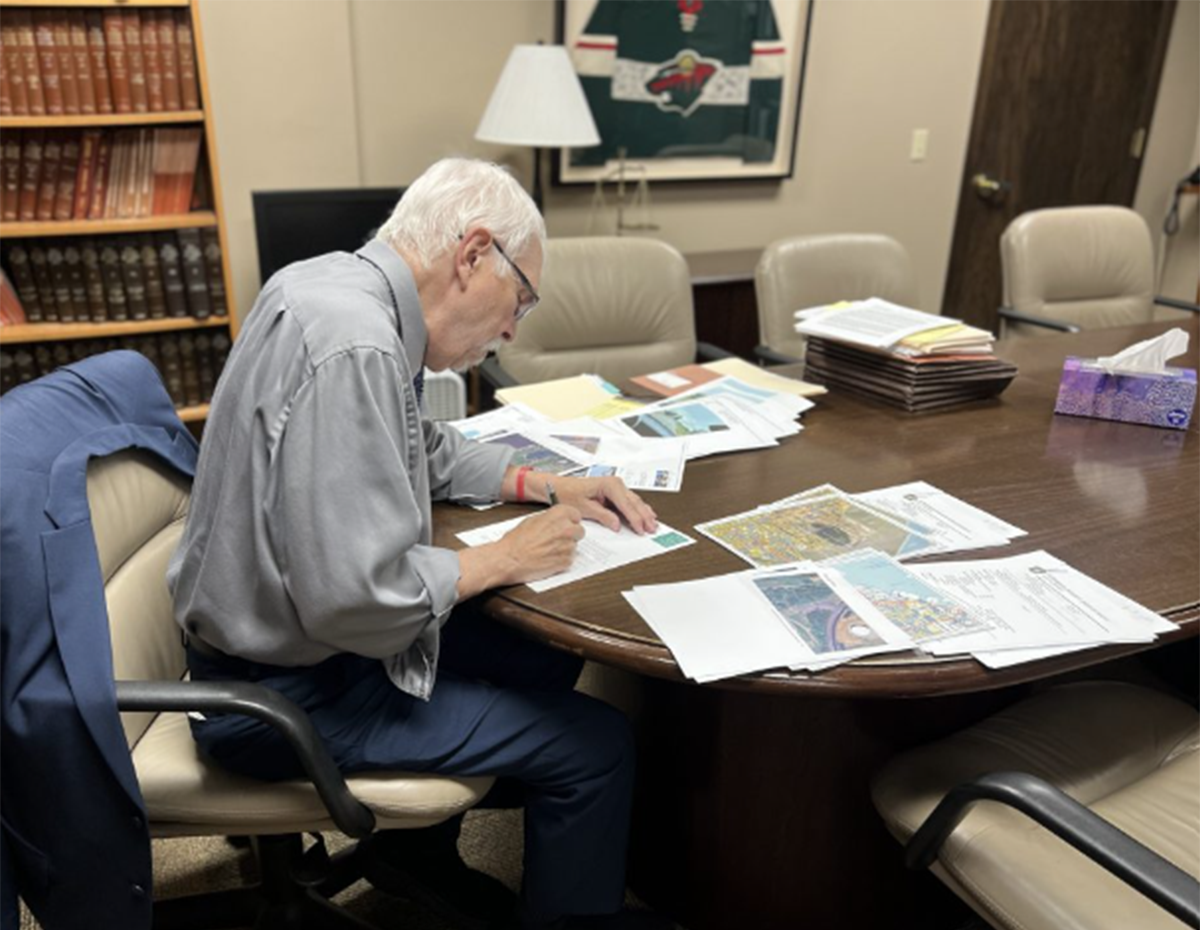Saying that a vote in an election shouldn’t be between the lesser of two evils, Omar Ali, Director of Research for the Committee for a Unified Independent Party (CUIP), urged students Wednesday to support the creation of a national independent party.
Ali, a professor of history at Fordham University (N.Y.), stopped by UW-Eau Claire as a part of his national lecture tour about independent politics.
He said the Democratic and Republican parties have become so powerful that America doesn’t have a meaningful democracy, and that nobody in the national government is looking out for Americans.
“Political parties should support the people,” Ali said. “Instead, they have taken away the voice of the people.”
Ali said that as America possibly goes to war with Iraq, Americans are divided in their support of it. He said there is a lack of democracy and Americans don’t know how to get through to Congress.
“I don’t want to go to war,” Ali said. “But I have no way of expressing that.”
Ali said that America has had a two-party political system for most of its history, but that most of its significant reforms have grown out of third-party or minority organizations.
As examples, Ali mentioned the issues of slavery, women’s voting rights and civil rights as movements that were initiated by a third party. He said the two-party political system is a system that needs to be changed just as those other systems were before.
“Americans can overthrow the two-party system,” Ali said. “In the 1830s, it was inconceivable to think you could overthrow the slavery system, but it happened.”
Sandra Mardinsone, a Latvian graduate student at Eau Claire, echoed Ali’s message that American democracy isn’t really democratic because the minority doesn’t have a voice.
“Political parties are bought by business interests,” Mardinsone said. “Businesses don’t spend money without knowing they’ll get something in return.”
Ali said that the Democratic and Republican parties work overtime to ridicule the efforts of the independent movement.
“Independents are treated like African-Americans living under the Jim Crow laws,” Ali said. “We are treated like second-class citizens. We have no say in the government.”
While the independent movement has gained ground in recent years, such as when Ross Perot received 20 million votes for president in 1992, Ali said there is still a lot of work to do to bust open what he called the “duopoly.” He said people can’t look at a vote for an independent candidate as a wasted one.
“It is a wasted vote to vote Republican or Democratic,” Ali said. “Voting for president shouldn’t be about choosing the lesser of two evils.”
Junior Tony Eichberger of the College Independents said the independent movement is good for people who want something different from government.
“The independent movement provides a sense of purpose of giving a voice to those dissatisfied with the major party establishment,” he said.
Ali said students should be committed to furthering the independent clause, no matter how few people seem to be involved. He said it was important for independents to realize they are a part of a larger movement.
And while the people who call themselves independents have many different views on political issues, Ali said it is important to focus on changing the political process rather than on a specific issue.
“I trust the American people to do the right thing,” he said. “We should work to build the movement.”






